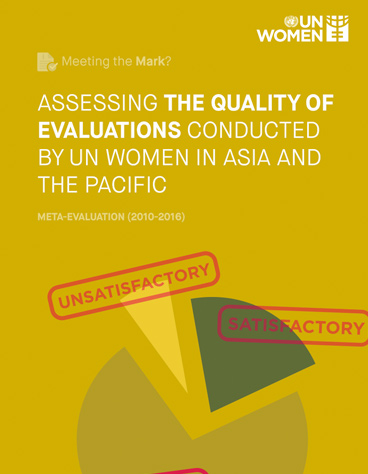
Assessing the Quality of Evaluations Conducted by UN Women in the Asia and the Pacific Region

Meta-Analysis of 2011-2016 Evaluation Reports
Given the decentralized nature of the organization, the majority of the evaluations supported by UN Women are managed at a decentralized level. To address the organizational demands for good quality and credible evaluations particularly at decentralized level, in 2013, the UN Women’s Independent Evaluation Office (IEO) introduced the Global Evaluation Reports Assessment and Analysis System (GERAAS).
GERAAS is an approach to rating evaluation reports using UN Women, UN Evaluation Group (UNEG) and UN System Wide Action Plan (SWAP) standards and indicators of report quality. The system is serving as a key instrument to increase the application of sound approaches and methods to continuously improve the quality and credibility of evaluation methods and reports within UN Women. As part of this process, the IEO assesses the quality of the oversight system on a quarterly basis and corporate and decentralized evaluations on a yearly basis.
This Meta-Evaluation is the second component of a larger review process. The first part included analysis of the Evaluation Oversight System of UN Women in the Asia-Pacific region and the third component will entail a Meta-Analysis to capture key insights from evaluation reports rated as satisfactory or above. Together, all three components will used to share key insights from different evaluation reports in order to develop constructive lessons for future systemic strengthening of programming and organizational effectiveness.

